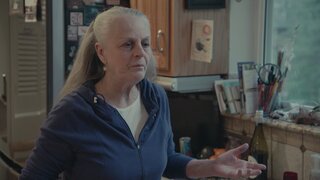Create a free profile to get unlimited access to exclusive videos, breaking news, sweepstakes, and more!
Why Was The Case Against Alleged Sex Abuser Coach Jim Wilder Dropped, And Will It Ever Be Reopened?
Jim Wilder, a popular track coach, was accused of having an inappropriate relationship with student Emilie Morris — but she tragically died before the case could go to trial.
For 87 minutes, Jim Wilder allegedly recounted the illicit relationship he had with former high school cross-country star Emilie Morris.
Morris — who had a recorder secretly tucked into her sports bra — recorded every disturbing detail as Wilder appeared to try to justify the alleged relationship and paint Morris, who told investigators she had been just 16 years old when the alleged abuse began, as the “persuasive” one.
“[In] 90 percent of the world, 15’s legal. So if I go over and boff a 15-year-old in Spain, I can do it all day in the streets — whatever — and nothing would happen,” he allegedly told Morris, according to the recording obtained by BuzzFeed News. “You touch a 16-year-old and you go to jail here.”
Wilder allegedly went on to admit “we did something that wasn’t right according to our laws these days” while insisting that he wasn’t “a creeper” — despite Morris later telling police that the pair regularly engaged in oral sex while she was an underage high school student.
Morris turned over the recording as evidence to the police. Wilder was arrested and charged with six counts of second-degree sodomy. But when Morris suddenly died just 16 months later, the case against Wilder was dropped.
As part of the Oxygen special “The Case Died With Her” about Emilie Morris, former prosecutor Loni Coombs spoke with Wesley Bell, the St. Louis Prosecuting Attorney, to find out more about why the case was dropped after Morris’ death.
Bell had not been in office at the time the case was dismissed but was able to provide insight into the legal obstacles hindering prosecution.
“My understanding was that the case was going to be hard to prove even with Ms. Morris’ testimony,” Bell told Coombs in the special. “There was no forensic evidence, there was no DNA evidence.”
Even though prosecutors were armed with the recorded statement, the recording lacked several key details needed to help authorities make their case — including discussion of when the abuse occurred and how old Morris and Wilder had been at the time.
Under Missouri law, second-degree statutory sodomy, which includes oral sex, applies if the victim is less than 17 years old at the time of the abuse and the perpetrator is 21 years old or older.
“It was never a direct admission as to when these acts may have happened because keep in mind, if they would have happened, say a week before or even the year before, they would have been legal acts,” Bell told Coombs.
Prosecutors had been planning to build their case using not only the taped audio but also Morris’ own testimony to provide the much-needed time element to the abuse.
“To prove their case, prosecutors needed both Wilder’s taped confession and Emilie’s statement and when she died, her testimony died with her,” Coombs said.
Beth Karas, a former prosecutor and legal analyst, also told Oxygen.com that under the sixth amendment every person accused of a crime has a right to confront their accuser, which couldn’t happen in this case.
“It’s called the right of confrontation,” she said.
As a result of Morris’ death, she would never be able to take the stand or be cross-examined.
“A lot of times when we see cases can’t go forward without the main person it’s because they were never cross-examined,” Karas said. “So everything that’s on that tape, it’s a good discussion between the two of them, but she was never challenged by his attorney.”
While there can be exceptions, Karas said prosecutors would still need to be able to prove the abuse occurred — during the exact time frame necessary under the legal requirements — beyond a reasonable doubt to get a conviction.
This legal standard is much higher than the probable cause standard needed to make an arrest, and without any physical or DNA evidence, Karas said prosecutors would have to think long-term about whether they could get a conviction and whether it could stand up to a possible appeal.
Without Morris to testify, Bell said prosecutors opted to dismiss the case rather than to try a case they weren’t confident they could win.
“If we prosecute a case that we know we can’t win, and we don’t win, we can’t prosecute that case again in the event that new evidence would come into play,” he said.
Coombs said for the case to proceed in court now, investigators would need to discover new evidence that would bolster the claims against Wilder.
“Unless someone comes forward that witnessed the alleged interactions between Coach Wilder and Emilie or someone Wilder confessed to in more detail, I don’t think the sex abuse case can be reopened,” she said in the special.
Another option for Morris to find justice could be if another victim came forward with similar claims of sexual abuse — however, Morris already wasn’t the only former student who came to police with such accusations.
In December 2008, a high school student reported that she had sexual contact with Wilder. He was arrested on charges of second-degree sodomy, but was never formally charged by the prosecutor’s office, The South County Times reported in 2009.
After reviewing the evidence, St. Louis Prosecuting Attorney Robert McCulloch determined at the time that there was a “lack of any credible evidence that any sexual contact had taken place” and the charges against Wilder were dismissed.
In terms of where the case stands now, Karas said if another victim chose to come forward, it’s possible the tape could be used as evidence in another trial to establish a pattern of conduct but said there could still be “evidentiary issues from voices from the grave because they can’t be cross-examined.”
However, because Wilder’s voice also appears to be on the tape, Karas said that could make it a stronger piece of evidence for establishing a pattern.
But without any additional witnesses and no physical DNA, it’s unlikely Morris’ case will ever move forward.
To learn more about Emilie Morris’ story and her mysterious death, watch “The Case Died With Her,” streaming on Oxygen.com.



































